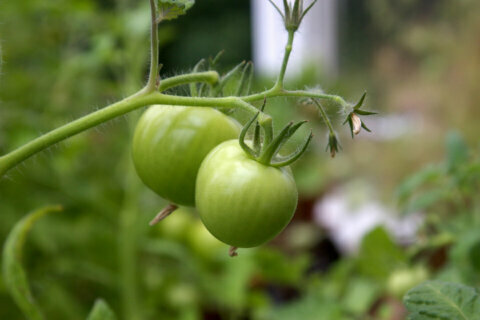Paula in Indian Head, Maryland, writes: “I have a chipmunk living under my house. I like them and think they are cute, but they are rodents. Should I plan to catch and relocate it or just leave it alone? I feed a lot of birds, so there is plenty of food, which is why he/she probably chose my house.”
Before we get to the issue of Chippy, we have to address your spilled birdseed, which has the potential to attract lots of nastier rodents, like mice, rats and garden-destroying voles. Using feeders that spill seed — which is all of them once evil squirrels get involved — is asking for serious vermin trouble.
Stop filling the feeders for at least awhile and the chipmunk may move on.
Oh, and the Humane Society specifically asks that people not put out seed at this time of year so that baby birds can learn to find their own food in the wild.
Spilled seed = mice = deer ticks
Paula in Indian Head wanted to know what to do about a chipmunk under her house that she felt was attracted by seed spilled from her bird feeders.
But I’m more concerned by that spilled seed, which is going to attract mice and rats.
Rats, of course, are just plain evil but mice may be more life-threatening as they are the prime carriers of the ticks that carry diseases like Lyme and Rocky Mountain spotted fever.
Many deer ticks have never seen a deer but they have all spent time feeding on the white-footed field mouse.
Make sure there’s no birdseed, pet food or other easy eating around your home and you will have taken a big step toward tick prevention in your landscape.
Taking Chippy for a ride
Time for me to (finally) answer Paula’s chipmunk query: “Should I plan to catch and relocate it or just leave it alone?”
Chipmunks don’t cause structural damage like groundhogs but there is always the potential for any wild mammal to carry fleas or ticks.
If the cute little critter were in a rock wall, their favorite habitat near humans, I would leave it alone. But because it’s under the house, you might want to relocate it.
Experts recommend an inexpensive 10-inch “Sherman” live trap baited with peanut butter and birdseed. Put the bait inside the trap but don’t set it until Chippy gets used to feeding inside, then set the trap mechanism.
To successfully keep a chipmunk from returning, you have to release it at least 20 miles away. Any closer and they can find their way back.
A gardener’s plea: Neighbors, trap your groundhogs
Diane in College Park, Maryland, writes: “Rabbits and deer get a lot of attention, but my small, suburban garden takes a beating from groundhogs.
“My neighbors have them, and as the groundhog family grows, each groundhog kid heads out to dig their multiple tunnels under nearby sheds, decks and porches. They devour garden beds, love mowing down flowers and eat tomato plants. I even saw one take a fresh tomato ‘to-go’ for the road!
“I have trapped them (be careful when releasing as they have sharp teeth and claws) and used motion-activated sprinklers and Deer Off to repel them, but the eviction is usually temporary. If you have groundhogs nearby, get the animals trapped and seal the den, or it will be a never-ending process for your gardening neighbors.”
How to trap a groundhog
Diane in College Park included a link to a brief but informative article from the Maryland State Extension that describes how to successfully “live-trap” a groundhog, including the great bit of advice to only leave the trap out during the day to avoid catching “non-target” nocturnal animals like the possums, raccoons and skunks I caught not knowing this.
As with other live traps, they suggest a few days of baiting but not setting the trap so that the animal gets comfortable going all the way inside.
They reveal the legalities of groundhog trapping. In short: You’re allowed to catch them, but legal release requires permission.
Mike McGrath was Editor-in-Chief of ORGANIC GARDENING magazine from 1990 through 1997. He has been the host of the nationally syndicated public radio show “You Bet Your Garden” since 1998 and Garden Editor for WTOP since 1999. Send him your garden or pest control questions at MikeMcG@PTD.net.







